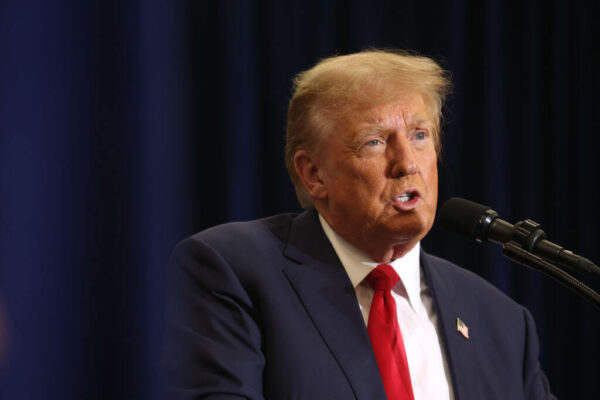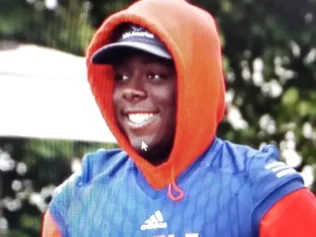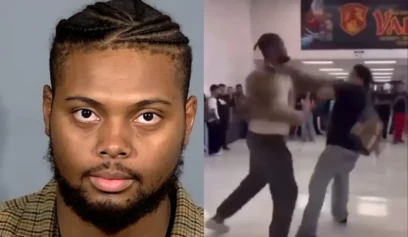It’s no secret that Donald Trump‘s legal woes keep growing bigger. In fact, the former president is facing at least four criminal prosecutions while on the campaign trail as the front-runner for the Republican presidential nomination in 2024.
Trump, who continues to make false claims of voter fraud in the 2020 election, is fighting federal criminal charges related to his attempts to overturn the election results in which he lost the 2020 presidential race to Joe Biden.
He is accused of pressuring state officials and spreading false claims of voter fraud while inciting the Jan. 6, 2021, attack on the U.S. Capitol. His trial is scheduled for March 4, but he is appealing to dismiss the case based on arguments mostly focused on the Constitution’s separation of powers and presidential immunity from prosecution.

In late December, the Supreme Court rejected a request to expedite arguments on Trump’s immunity from federal prosecution for alleged crimes during his presidency, CNN reported. The decision, without explanation, was a setback for special counsel Jack Smith, likely delaying Trump’s trial in the election subversion case.
As for his criminal allegations, federal appeals court judges on Tuesday questioned Trump’s legal team about those immunity claims during a hearing where they “touched on a range of political and legal considerations,” AP reported. The court signaled that they are likely to dismiss Donald Trump’s assertion of immunity from prosecution in his election interference case. That would mean Trump could be prosecuted.
A three-judge panel of the U.S. District Court of Appeals for the D.C. Circuit was skeptical about Trump’s arguments against criminal prosecution. Judge J. Michelle Childs questioned the timing of considering Trump’s appeal, while Trump’s attorney, D. John Sauer, argued that presidential immunity should be addressed before trial, citing legal precedent. A watchdog group, American Oversight, suggested the appeals court lacks jurisdiction, potentially sending the case back to trial court before deciding on immunity.
The judges also asked how his immunity would apply to other hypothetical scenarios, such as ordering drone strikes, sending SEAL Team Six on a mission, or shooting someone on Fifth Avenue.
Sauer, Trump’s lawyer, acknowledged that a president could be prosecuted for private conduct but would not acknowledge Trump could be prosecuted for acts committed while in office, arguing that Trump’s actions challenging election results and urging Congress during his presidency are considered “official acts,” which grants him immunity.
As reported by BCC, Trump’s lawyers wrote in the Monday court filing: “From 1789 to 2023, no President ever faced criminal prosecution for acts committed while in office. That unbroken historic tradition of presidential immunity is rooted in the separation of powers and the text of the Constitution.”
Still, Trump’s defense said that the Constitution protects him from prosecution because the U.S. Senate acquitted him of inciting the Jan. 6, 2021, riots in his impeachment trial, the AP wrote. They assert that the impeachment judgment clause implies criminal charges can only follow if a president is impeached and convicted for comparable conduct.
Although judges have not made it clear when they might rule, Trump’s attorneys are hoping to delay the case beyond the November election and have signaled to take the case to the U.S. Supreme Court if the D.C. court sides with special counsel Smith, The Associated Press reported.
Meanwhile, the principle of separation of powers in constitutional law divides the government into three branches: legislative, executive, and judicial. Each branch has specific functions and powers aligned with its respective role.
Last week, Trump filed a motion asserting that special counsel Jack Smith should be held in contempt of court for allegedly breaching a stay order in the federal 2020 election case.
Trump said in a written statement: “Deranged Jack Smith, in contempt of Court for repeatedly violating the stay order in the Washington DC J6 Witch Hunt. Smith was ordered to not take any further action in the trial court until the presidential immunity issue is resolved, which should be a full dismissal of this ‘case’ because President Trump was carrying out his duty as president…rather than respect the rule of law, Jack Smith unilaterally decided to disobey the stay order and continue with his harassing litigation, all done in order to keep parroting the pathetic Biden campaign’s corrupt talking points in the name of election interference.”


